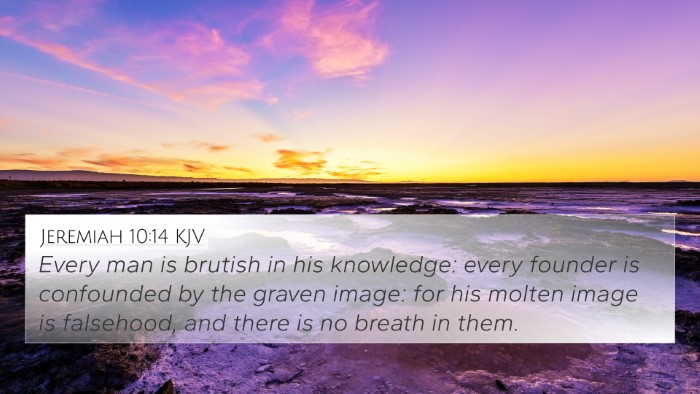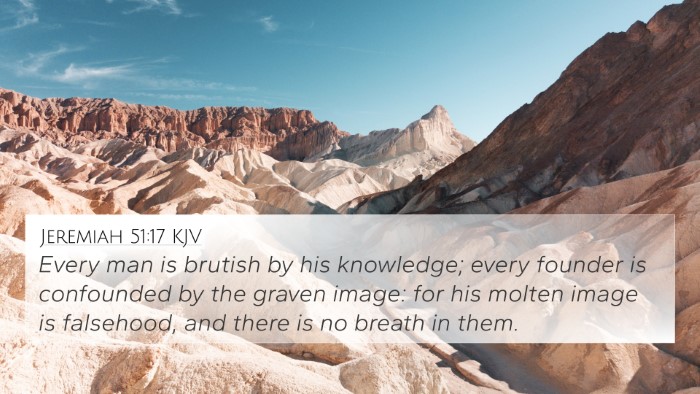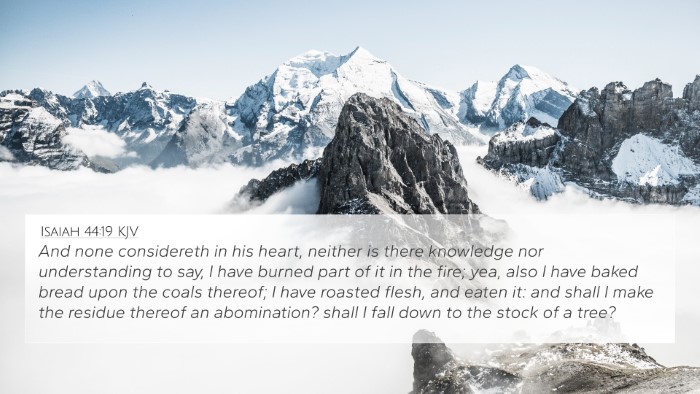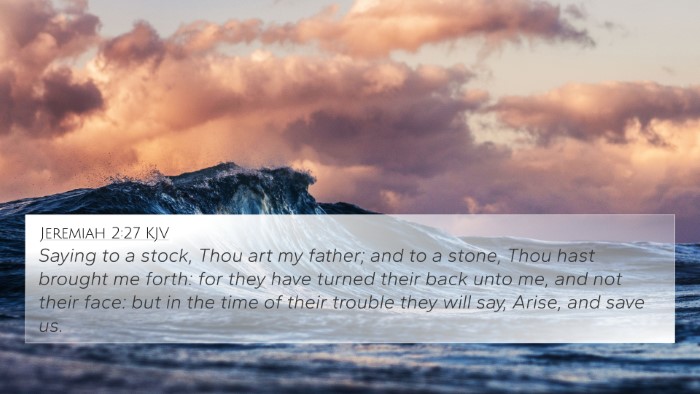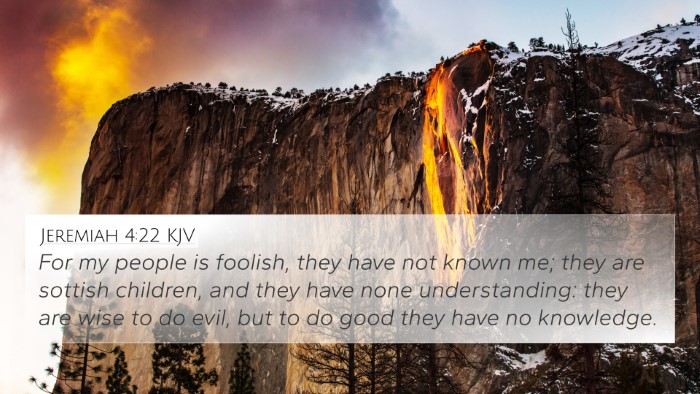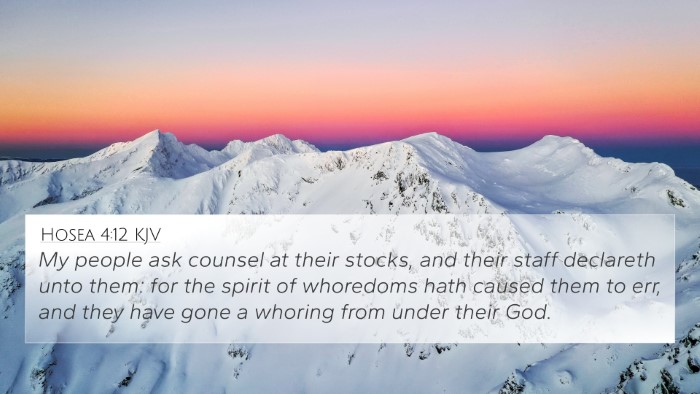Understanding Jeremiah 10:8
Jeremiah 10:8 states: "But they are altogether brutish and foolish: the stock is a doctrine of vanities." This verse criticizes the futility of idolatry and highlights the ignorance of those who practice it. It serves as a strong warning against relying on false gods and empty teachings.
Summary of Meaning
This verse underscores several critical themes:
- Foolishness of Idolatry: Matthew Henry emphasizes that those who indulge in idolatry lack understanding and wisdom.
- Nature of False Teachings: Adam Clarke elaborates on the vain doctrines that accompany idolatry, warning believers to be wary of misleading teachings.
- The Superiority of God: Albert Barnes points out that this passage showcases the profound contrast between the living God and the lifeless idols.
Detailed Commentary Insights
This section incorporates insights from public domain commentaries to enrich the understanding of Jeremiah 10:8:
Matthew Henry's Commentary
Matthew Henry describes the context of this verse as a stark reminder of the ignorance that characterizes those who worship idols. He notes that this foolishness leads to spiritual and moral depravity, as those who engage in such practices do so out of a lack of understanding of the true nature of God.
Albert Barnes' Notes
Albert Barnes emphasizes the concept of "brutish" behavior among idolaters, likening it to the irrationality of animals. He illustrates that reliance on physical idols signifies a departure from rational thought and spiritual wisdom.
Adam Clarke's Commentary
Adam Clarke provides a linguistic analysis of the word "doctrine," suggesting that it refers not merely to teachings but to destructive and unprofitable beliefs that lead people away from genuine worship of God.
Cross-References to Jeremiah 10:8
Understanding the interconnectedness of biblical texts enriches one's study. Here are some relevant cross-references associated with Jeremiah 10:8:
- Psalms 115:4-8: Describes the impotence of idols, emphasizing that those who trust in them become like them.
- Isaiah 44:9-20: Discusses the futility of carving idols and the folly of worshiping them.
- 1 Corinthians 8:4-6: Highlights that idols are nothing in the world and reiterates the oneness of God.
- Habakkuk 2:18-19: Contemplates the value of idols and the vain hopes attached to them.
- Romans 1:21-23: Illustrates how humanity exchanges the truth of God for lies, leading to idolatry.
- Revelation 21:8: Warns that idolaters will have their place in the lake of fire, reflecting the severe consequences of idolatrous practices.
- Exodus 20:4-5: The command against making graven images and the dangers of idolatry as highlighted in the Ten Commandments.
Thematic Connections to Other Scriptures
By examining thematic connections, we see how Jeremiah 10:8 relates to broader biblical teachings:
- Worship in Spirit and Truth (John 4:24): Jesus emphasizes authentic worship over ritualistic practices.
- Idol of the Heart (Ezekiel 14:3): Discusses how internal beliefs can become idolatrous.
- Knowledge of God (Jeremiah 9:23-24): Contrasts worldly wisdom against the knowledge of God.
Importance of Cross-Referencing
Using tools for Bible cross-referencing is crucial for deeper understanding. Here are some benefits:
- Provides a comprehensive view by connecting similar themes and teachings.
- Enhances comprehension of complex narratives by examining related verses.
- Supports sermon preparation with richly interconnected scriptures.
Conclusion
Jeremiah 10:8 serves as a pivotal reminder of the realities of idolatry and the importance of discerning truth from false teachings. By engaging with this verse through various commentaries and cross-references, we gain a holistic understanding that fosters spiritual growth and fortifies our faith.




